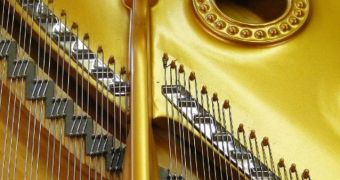Northwestern University researchers have determined in a new study that people who had musical training tend to be more capable of hearing speech in noisy conditions than their peers. At the same time, they are less likely to experience age-related memory decline as the years pass.
The correlation was found to hold true primarily for lifelong musical training, investigators say. But past studies conducted in the field have evidenced that receiving even a little musical training as a child has positive effects later on in life.
What the recent investigation demonstrated was that this type of training extends people's ability to hear speech in noise, while at the same time making their memories more capable of resisting the attack of age. The human brain is known to experience deterioration as the years go by.
The Northwestern research was conducted by the director of the Auditory Neuroscience Laboratory at the university, Dr. Nina Kraus. She is also one of the coauthors of a new paper detailing the findings, which appears in the latest online issue of the peer-reviewed journal PLoS One.
Unlike previous studies of the same nature, the new work focused on investigating musicians aged between 45 and 65. The participants were compared to peers of similar age, but with no musical background whatsoever.
“Difficulty hearing speech in noise is among the most common complaints of older adults, but age-related hearing loss only partially accounts for this impediment that can lead to social isolation and depression,” Kraus explains.
“It’s well known that adults with virtually the same hearing profile can differ dramatically in their ability to hear speech in noise,” the expert adds, quoted by PsychCentral. For this study, experts analyzed 19 non-musicians and 18 musicians.
All participants were put through various tests, including some meant to assess their ability to process speech in noise, auditory working memory, visual working memory and auditory temporal processing.
Both groups showed nearly identical ability in visual working memory tasks. In all others, test subjects in the musicians' group outperformed their peers by a considerable margin.
“The neural enhancements we see in musically-trained individuals are not just an amplifying or ‘volume knob’ effect. Playing music engages their ability to extract relevant patterns, including the sound of their own instrument, harmonies and rhythms,” Kraus explains.
“If the materials that you work with are sound, then it is reasonable to suppose that all of your faculties involved with taking it in, holding it in memory and relating physically to it should be sharpened,” she adds.
“Music experience bolsters the elements that combat age-related communication problems.” the expert concludes.

 14 DAY TRIAL //
14 DAY TRIAL //